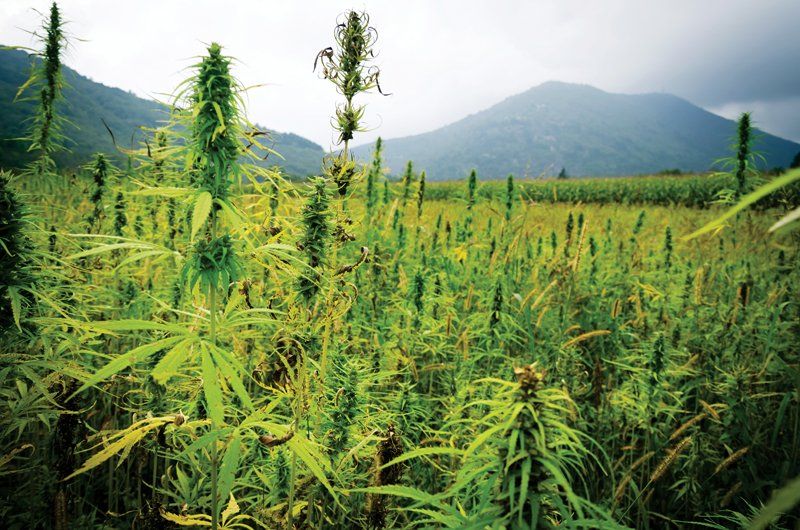Hemp CBD Is a Schedule I Drug, DEA Says
The DEA clarified last week that hemp CBD does indeed fall into Schedule I drug classification of the Controlled Substances Act.
Photo © iStockphoto.com/AlenaPaulus

It’s been one of the biggest lingering questions for hemp CBD (cannabidiol) on the dietary supplements market: does CBD fall into Schedule I drug classification of the Controlled Substances Act (CSA)? The answer, according to the DEA at least, is absolutely.
CBD, a non-psychoactive variety of Cannabis sativa and a chemical cousin of tetrahydrocannabinol (THC), has achieved remarkable success in supplements in recent years, despite lacking FDA recognition as a dietary ingredient. Some CBD suppliers have even said the ingredient’s regulatory controversies have helped sales.
But in the latest regulatory development for CBD, the DEA published a final rule in the Federal Register last week clarifying that “extracts of marijuana will continue to be treated as Schedule I controlled substances.” All existing CBD products fit the definition of marijuana extracts, according to the DEA, and therefore the ingredient now finds itself explicitly placed on the same list of banned substances as heroin and LSD. The establishment of the new drug code for marijuana extracts will go into effect on January 13, 2017.
While the DEA has previously issued separate code numbers for marijuana and for THC, there was no code number specifically for marijuana extracts-which may be part of the reason why some CBD proponents believed the ingredient was free of a Schedule I listing. But according to the Federal Register notice, the DEA already considered marijuana extracts to be in Schedule I. Until now, it was just treating CBD and other extracts under the same drug code as marijuana.
The agency ultimately decided to create a separate, distinct code for marijuana extracts to better track studies on marijuana extracts like CBD separately from marijuana itself, and to ensure compliance with international drug control treaties. Marijuana extract will be defined as “meaning an extract containing one or more cannabinoids that has been derived from any plant of the genus Cannabis, other than the separated resin (whether crude or purified) obtained from the plant.”
The Hemp Industries Association (HIA; Summerland, CA) was quick to challenge the DEA’s action, stating that the agency is beyond its jurisdiction in trying to “amend or augment the definitions put forth in the [CSA].” Such a move would require Congress to pass new legislation, or the Attorney General to take action, HIA suggests.
“It’s important to understand that this final rule does not change the legal status of hemp-derived CBD,” says Eric Steenstra, executive director of HIA, in a public statement. “Cannabidiol is not listed on the federal schedule of controlled substances, and the DEA has no authority whatsoever to impede the production, processing, or sale of hemp products, including CBD products, grown under the Farm Bill.”
HIA argues that the DEA has made a “contradictory assertion” in suggesting that marijuana extracts require separate tracking from other forms of marijuana, but should still be subject to Schedule I status because they constitute marijuana as described in the CSA. It may also be inappropriate to classify all CBD products as “marijuana extracts,” HIA notes, because CBD may be produced from industrial hemp plants that meet standards in the Farm Bill (Sec. 7606) allowing for hemp plants with less than 0.3% THC by dry weight.
But to the DEA, even 0.3% THC is too much. The agency says that “for practical purposes, all extracts that contain CBD will also contain at least small amounts of other cannabinoids.” Even if it were possible to produce an extract containing only CBD (which the DEA is not currently aware of), such an extract would still fall into the new Schedule I drug code for marijuana extracts, the DEA says.
HIA cautioned that this move from the DEA will create confusion in the marketplace and could result in federal agencies “improperly treating” CBD supplements and other products as controlled supplements. The association continues to hold the position that CBD products should be legally defined as dietary supplements.
“We urge consumers and business not to panic, and continue supporting the growth of the hemp industry in the U.S.,” Steenstra says.
Nutritional Outlook will elaborate on this story as more information becomes available.
Read more:
FDa’s Latest CBD Warning Letters Cite Health Claims, Drug applications
Will Hemp CBD’s Regulatory Controversy Help or Hurt Its Future as a Supplement Ingredient?
5 Hemp CBD Research Areas for Further Supplement Growth
Michael Crane
Associate Editor
Nutritional Outlook Magazine
michael.crane@ubm.com
HHS announces restructuring plans to consolidate divisions and downsize workforce
Published: March 27th 2025 | Updated: March 27th 2025According to the announcement, the restructuring will save taxpayers $1.8 billion per year by reducing the workforce by 10,000 full-time employees and consolidating the department’s 28 divisions into 15 new divisions.







